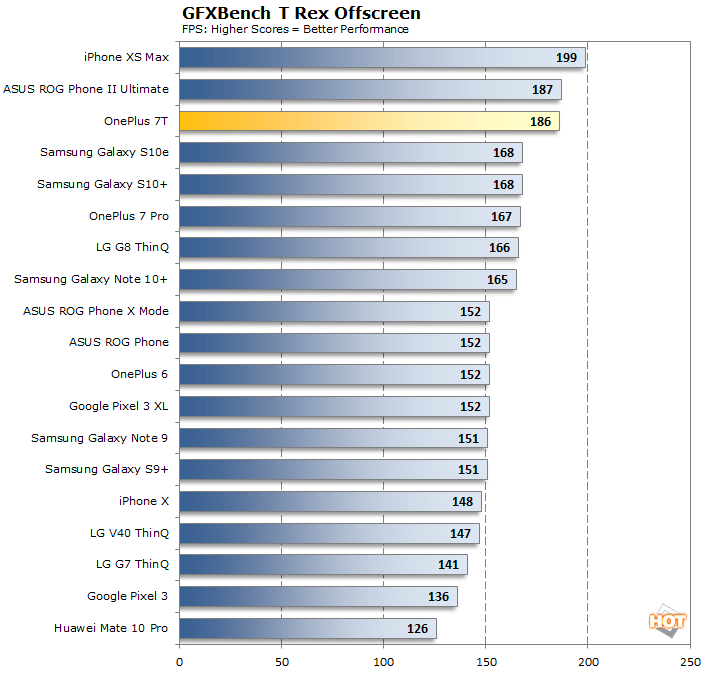Next we'll see how the new Samsung Galaxy Note 10+ holds up with GFXBench, which has been one of our standard mobile
graphics performance benchmarks for years. In order to ensure display refresh (v-sync) and resolution are not limiting factors, we are comparing off-screen test results here. GFXBench tests
OpenGL ES graphics workloads and we're specifically testing GLES 2.0 and 3.0 rendering performance in the following two benchmark modules.
 |
|
3D Graphics Benchmarks: 3DMark & GFX Bench |
|
Pushing The Pixels |
|


The iPhone stays in the pole position in the two GFX Bench tests we ran, but the OnePlus 7T isn't too far behind. Versus the other Android-based devices, the OnePlus 7T trails only the ASUS ROG Phone II Ultimate, which is a phone purpose-built for gaming and graphics performance, that is based on the same Snapdragon 855+ mobile platform, incidentally.
Futuremark's 3DMark has been a staple 3D graphics benchmark at
HotHardware across all mobile and desktop platforms alike. In this case, we were running the
3DMark Sling Shot test, which is powered by an
OpenGL ES 3.1-based graphics engine. 3DMark Sling Shot is a newer benchmark module that's been added to the 3DMark mobile suite, which features a more forward-looking OpenGL ES 3.1 and Metal API-based test that employs more advanced rendering techniques, like volumetric lighting, particle illumination, multiple render targets, instanced rendering, uniform buffers and transform feedback.
Once again we see the ASUS ROG Phone II Ultimate taking the lead in this graphics and gaming related benchmark. The OnePlus 7T competes neck-and-neck with Samsung's current flagship Note 10+, however, trading victories in GT1 and GT2. The Note's overall lead comes by way of a slightly higher physics score (the OnePlus 7T led in the graphics test), which boosts is final result.












